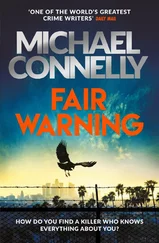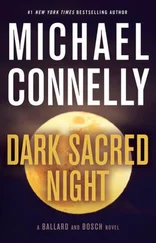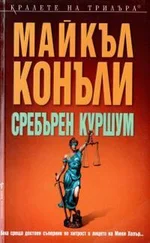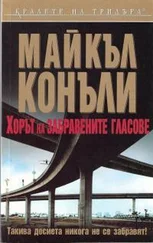17 parked in handicap—no tag.
That reference was to the male member of the new trio. It was an interesting piece of information but not something I would be able to go at directly without possibly giving away how I got the information. Revealing that I had an investigator scoping out potential jurors in the parking garage would not go over well with the judge or the California bar. It didn’t go over well with Maggie McFierce either. She was getting a quick education in criminal defense and didn’t always like what she was learning. But I wasn’t worried. She was now co-opted by the attorney-client relationship.
I had watched number 17 stand up in the gallery when his number was called. He had squeezed past others out of the row and then moved to the jury box for questioning without showing any obvious physical difficulty or handicap. Of course, there were other possible unseen issues that could have resulted in his receiving a handicap tag. But it bothered me. If the man was a cheat, I didn’t want him on the jury.
Cisco immediately followed his first missive with a text on one of the women.
68 should be 86ed. Trump 2020 bumper sticker.
This was good intel. Politics were a good window into a person’s soul. If 68 was a supporter of the president, it was likely she was a law-and-order hard-liner—not good for a guy accused of murder. That this person would continue to support the president after the media had documented his many, many untruths was a factor as well. It was blind loyalty to a cause, and an indicator that truthfulness was not an important part of her framework.
I agreed with Cisco. She had to go.
On the third potential juror—number 21—Cisco had limited intel.
21 drives a Prius. Extinction Rebellion sticker on rear window.
I didn’t know what an Extinction Rebellion sign was but I thought I understood the sticker’s message. Both pieces of information were almost useless. Both could be indicators of a judgmental personality, particularly when it came to the environment and crime. I drove a gas-eating Lincoln and that would certainly come out in trial. And I was charged with a very violent crime while being a person who associated professionally with others charged with violent acts.
I kept an ear on the proceedings as Berg questioned the new candidates but I also huddled with Maggie as she pulled out the questionnaires the three had filled out when reporting for jury service.
Immediately I changed my mind about 21. I liked what I read. She was thirty-six years old, unmarried, lived in Studio City, and had a job as a prep chef at one of the upscale restaurants at the Hollywood Bowl. This told me she liked music and culture and chose to work in a place that had both. She also listed reading first among her hobbies. I didn’t think anyone who was a reader could avoid coming across stories—nonfiction or fiction—that underscored the frailties of the American justice system, chief among them that the police don’t always get it right and that innocent people are sometimes accused and convicted of crimes they didn’t commit. I believed that would give 21 an open mind. She would listen closely to my case.
“I want her,” I whispered.
“Yeah, she looks good,” Maggie whispered back.
I moved on to the other two questionnaires. I saw that 68, the other female, was my age and had gotten married the same year she graduated from Pepperdine, a conservative Christian school in Malibu. Add all of that to the Trump bumper sticker, and I was convinced. She had to go.
Maggie agreed.
“You want to use the last challenge?” she asked.
“No, I’m going to question her,” I said. “Try to get her bumped for cause.”
“What about the guy? There’s nothing here.”
She was referring to 17. I scanned his questionnaire and had to agree with Maggie. Nothing on the single page drew a flag. He was forty-six years old and married, an assistant principal at a private school in Encino. I was familiar with it because Maggie and I had flirted with the idea of sending Hayley there for elementary school many years before. We took the tour and went to a parents’ presentation but ultimately got a bad vibe. Most of the students came from well-to-do families. We weren’t destitute by any means but Maggie was a civil servant and I was always chasing money cases. Some years were fat, some were thin. We thought the peer pressure on our daughter would be unhealthy. We enrolled her somewhere else.
“You remember this guy?” I asked. “He would have been there when we looked at the place.”
“I don’t recognize him,” Maggie said.
“I’ll see what I can get on Q and A. You okay with my taking all three?”
“Of course. It’s your case. I don’t want you deferring to me.”
While Berg finished her canvassing of the jurors, I wrote notes on all three on Post-its and attached them to the corresponding squares on my ice-cube tray chart. I wrote in green for 21 and red for 68. For 17, I wrote a yellow question mark. Then I folded the file closed.
38
When it was my turn to question the people who might decide my future, the judge verbally cut me off at the knees before I even got to the lectern.
“You have fifteen minutes, Mr. Haller,” she said.
“Your Honor, we technically have three open seats and then the alternates to fill,” I protested. “The prosecution just took way more than fifteen minutes to question these three.”
“No, you’re wrong. I timed it. Fourteen minutes. I’m giving you fifteen. Starting now. You can use the time to argue with me or to question the jurors.”
“Thank you, Your Honor.”
I went to the lectern and started with number 68.
“Juror sixty-eight, I was looking at your questionnaire and didn’t see what your husband does for a living.”
“My husband was killed in Iraq seventeen years ago.”
That brought a moment of silence—a collective holding of breath—as I retooled my approach. I could not let the jurors who were already seated see me treat the woman with anything but kid gloves.
“I’m sorry for your loss,” I said. “And that I even brought the memory up.”
“Don’t worry,” she said. “The memory never goes away.”
I nodded. Though I had stumbled into this, I had to find a way to finesse my way out.
“Uh, on the questionnaire, you didn’t check that you had been a victim of a crime. Don’t you consider the loss of your husband to be in a way a crime?”
“That was war. That was different. He gave his life for his country.”
God and country—a defense lawyer’s nightmare on a jury.
“Then he was a hero,” I offered.
“And still is,” she said.
“Right. He still is.”
“Thank you.”
“Have you been on a jury before, ma’am?”
“It was one of the questions on the form. No, I have not. And please don’t call me ma’am. Makes me feel like my mother.”
There was a slight tickle of laughter in the courtroom. I smiled and pressed on.
“I will refrain from doing that. Let me ask you a question: If a police officer testifies to one thing and then a regular citizen testifies and says the opposite, whom do you believe?”
“Well, I guess you just have to weigh what each one says and try to figure out who’s telling the truth. It could be the officer. But it might not be.”
“But do you give the police officer the benefit of the doubt?”
“Not necessarily. I would have to hear more about the officer. You know, who he is, how he comes across. Like that.”
I nodded. It was becoming clear that she was a Jury Judy—someone who wants to be on the jury and gives the right answer to every question whether or not it reflects her true sentiments. I am always suspicious of people who want to be on a jury, who want to judge others.
Читать дальше
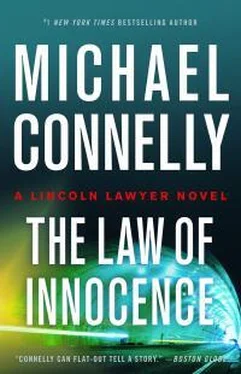
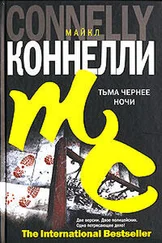
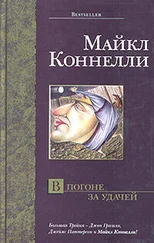

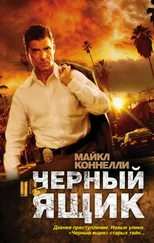
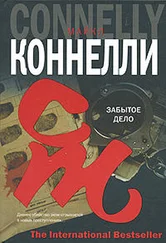

![Майкл Коннелли - Christmas Even [Short story]](/books/390532/majkl-konnelli-christmas-even-short-story-thumb.webp)
